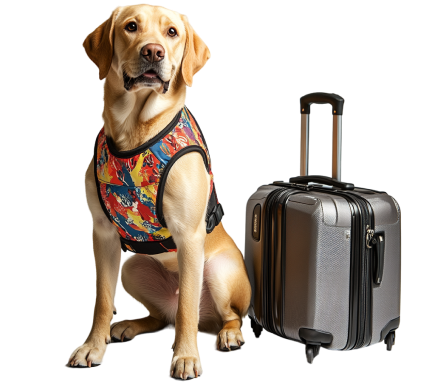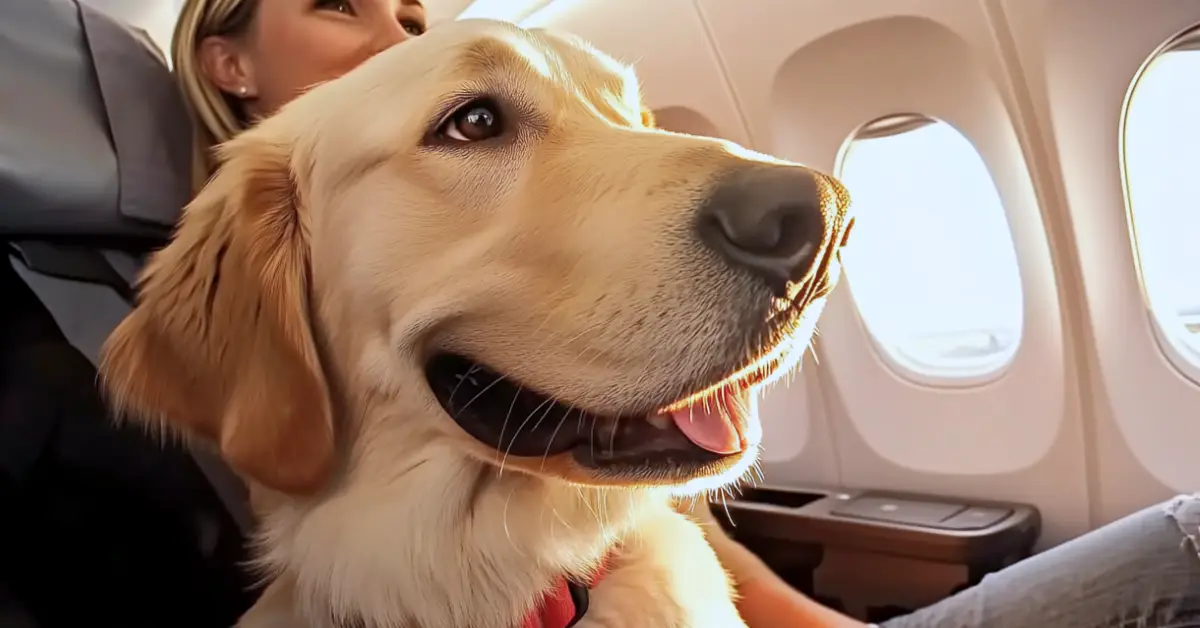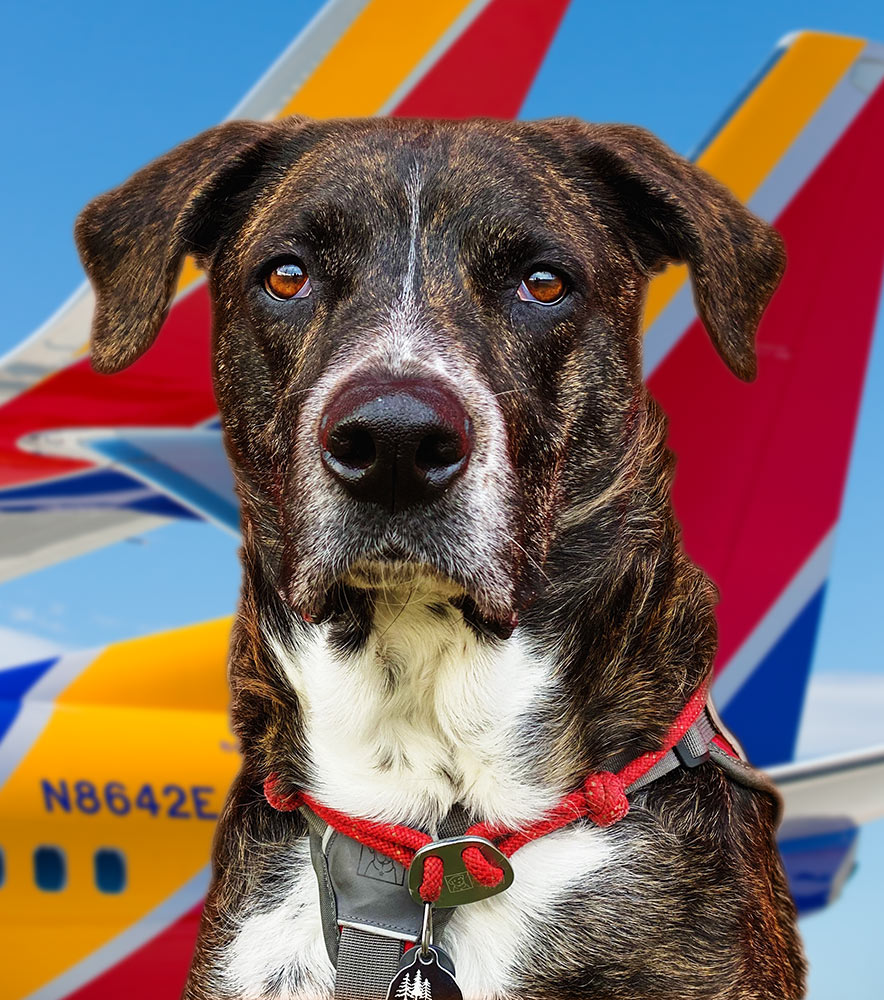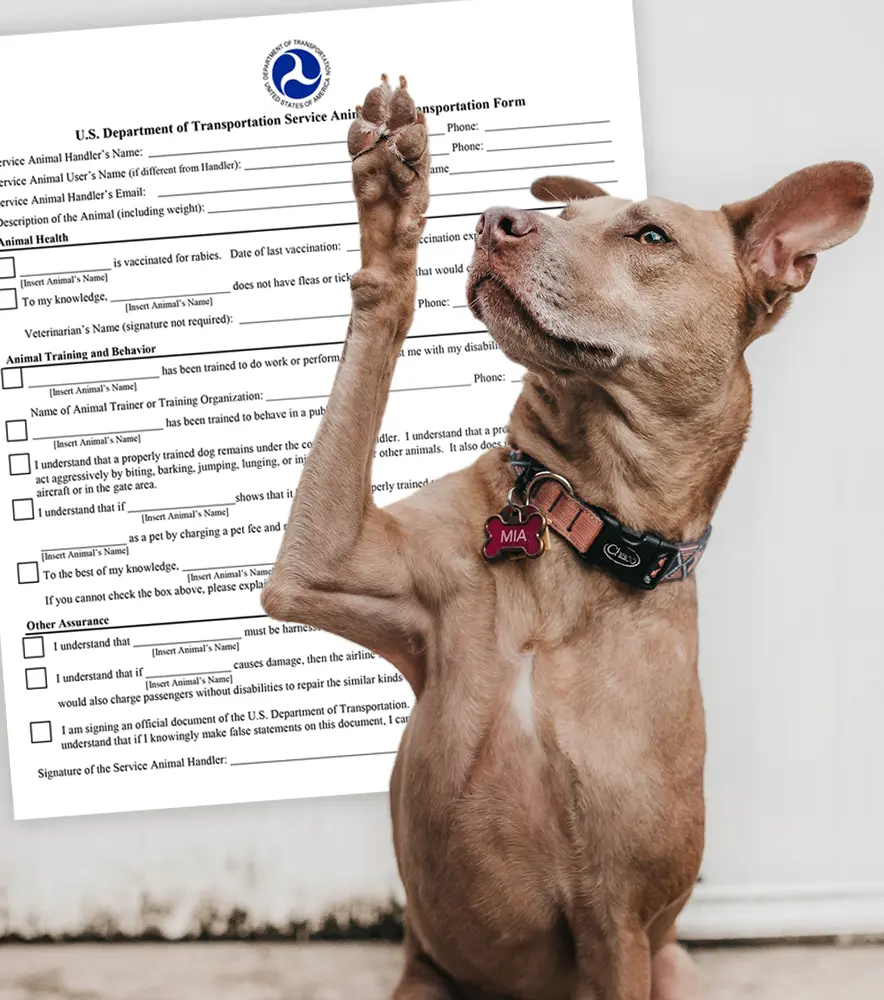Apologies, but no results were found. Perhaps searching will help find a related post.
Flying & Traveling With Service Dogs, ESAs and Pets
Make traveling with your assistance animal or pet stress-free. Find detailed guides on airline policies, hotel accommodations, international requirements, and tips for smooth journeys together.

Most Popular Travel Articles
Service Dog Rules for Staying in Hotels
Service dogs have hotel rights as part of the public access rights given to service dogs and their handlers under the Americans with Disabilities Act... Read more
Flying With a Service Dog – The Ultimate Guide
This article was last updated on December 11th, 2024, to reflect the latest updates in the DOT’s rules for air travel. This is a guide... Read more
Hotel Rights for Service Dogs
Just like everyone else, service dog owners will stay at a hotel every so often. When they do, they can bring their service dogs with... Read more
How to Fly With a Service Dog on Southwest Airlines
Widely known for its excellent customer service, Southwest Airlines is one of the most preferred airlines in the United States. If you’re one of their... Read more
How to Use the DOT’s Service Animal Air Transportation Form to Board Flights
Download the DOT Form - Service Animal Air Transportation Form (pdf) here. If you plan to fly with a service dog, there is one document... Read more









